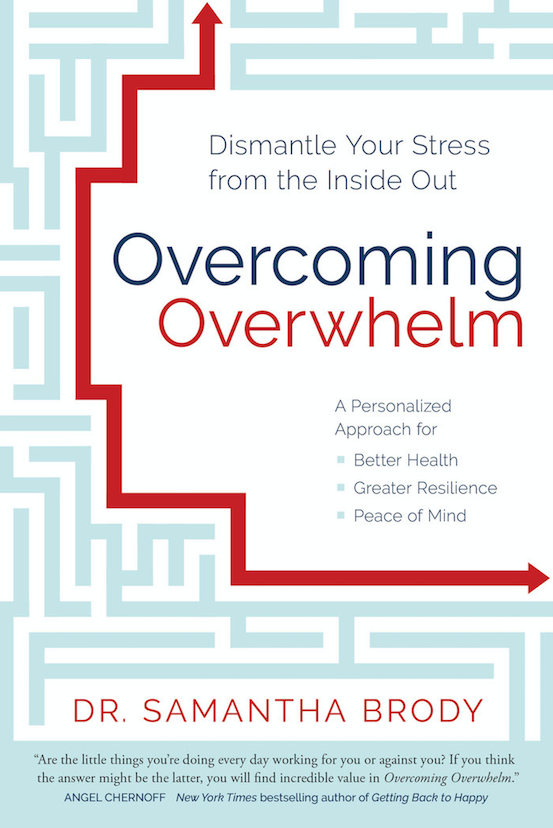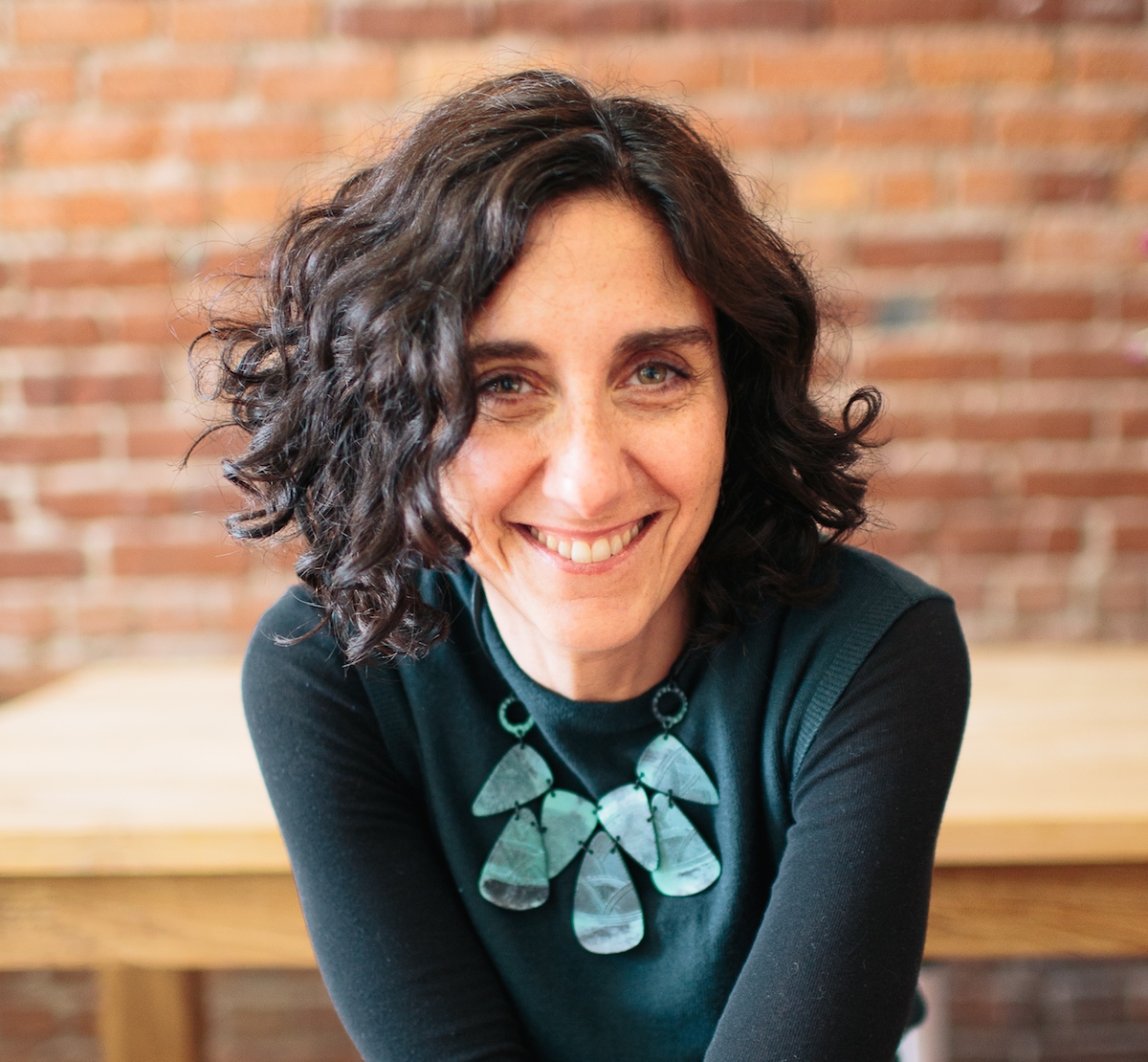You Can’t Do Everything
Most of us are experts at ignoring our own needs and limits. We keep adding line items to our to-do lists or our “I really should . . .” lists as if we could do all of them. Sometimes we add something to our list that we think we are supposed to do; sometimes we add it because someone else wants us to do it; sometimes we add something because we really want to do it. But the reality is that even if we only said yes to the things we want to do, most of us would still be totally overburdened.
I want to learn Spanish and how to play piano. I want to reorganize my basement and clean out my garage. I want to exercise and get in 15,000 steps every day. I want to cook for my family. And that’s barely the tip of the iceberg…
I also have responsibilities. I have a brick-and-mortar medical practice with seven employees. I have appointments scheduled with clients all over the globe as part of my online coaching and consulting business. I do freelance writing. I travel to speak on a regular basis. I handle our family’s finances and many of our day-to-day logistics. Oh, and my husband and son need a little bit of my attention and time too.
Then there are the commitments I’ve made because I wanted people to like me, or because I didn’t want to let people down: Freelance writing that doesn’t pay well enough to cover my time. Speaking at events that are not in alignment with my business or values. Bringing cupcakes to the school Halloween party.
I can’t forget the little day-to-day things in both of my businesses and at home that seem like they simply must get done, from salting the ice in the parking lot to cleaning a hair wad out of the drain to changing out the empty toilet paper roll.
When I type this all out and look at it, I’m immediately overwhelmed. But then I pause, because I know better.
I actually don’t feel overwhelmed most of the time, and that’s because I have learned to be ruthless when it comes to taking things on. Because I regularly work through all the exercises in this chapter, I am clear about what my priorities (values) are and how much bandwidth I have at any given time. If I end up with too many things in my bucket—which does happen, because life is life, after all—I know that’s my cue to reassess and shift gears.
If after reassessing, I still feel overwhelmed, I review my schedule with a highlighter and red pen in hand. I always find that there is more time I can capture back. Maybe I can cut back a little bit on my reading or cancel some engagements. Maybe I can spend less time on Facebook, or perhaps I can let go of that volunteer position I thought was reasonable to take on. There is alwayswiggle room.
The other morning, I woke up and walked into the kitchen where my husband, Jon, was already up and packing lunches. He had giant dark circles under his eyes, and his eyelids were puffy and swollen. I thought to myself: either the eggs and bacon had brought him to tears, or he hadn’t gotten enough sleep. Again.
It turned out to be the latter. When I expressed my concern, he said, “After bedtime is the only time I have to get anything done.” I lovingly called bullshit. That weekend had been full, certainly, but it was hardly the case that he didn’t have time to get to his to-do list. He might have chosen not to get to his list, but that’s not the same.
I wasn’t shaming my husband for kicking it with our kid over the weekend, or for wanting to chat with his friends. We all need down time. But were those things really more important than his sleep? When we talked about it in more detail, he admitted that no, they weren’t. And truthfully, if he could grab back just a few hours a day, he would easily be able to get eight hours of sleep, which would mean he’d have had plenty of energy, and he’d have more bandwidth to do the things that were important to him.
My patient Rebecca was frustrated with her husband’s disinterest in travel. Seeing and exploring the larger world was very important to her and had been a key part of her life before she met her husband. In fact, she had traveled with him early on in their relationship, before they had children, and it never crossed her mind that they wouldn’t continue to travel together—as a couple and as a family. But it turned out that travel wasn’t something he wanted to prioritize either logistically or financially.
When we began working together, Rebecca was in a spin of constant overwhelm with her responsibilities at home and at work. Not only was she not traveling; she was also spending her time doing things she didn’t enjoy: Making cupcakes for school events. Chaperoning school field trips. Planning for, packing for, and handling all the logistics for their weekend trips to a family cabin. Cooking dinner every night. And she was doing all of this while working part time and managing several chronic health conditions. She liked her job, but the hours outside of her work were full top to bottom—and not with things that she wanted to be doing.
Rebecca, like all of us, had responsibilities. But when she continually put things in her bucket that she didn’t need to do, yet feel compelled to add, so there was no room left for the things she did want to do, how could she not feel overwhelmed?
Rebecca may not be in a position to travel right now, but she certainly doesn’t need to fill her days with volunteer positions that she hates. After doing her values and feelings exercises, she understood just how off-track she was. She vowed to make some changes. It wasn’t easy, as Rebecca has a hard time with the feeling she is letting people down. But she understood that it didn’t serve her or her family to run herself ragged. She arranged with her husband to trade off cooking nights. She started buying those cupcakes instead of making them from scratch. She had her kids start packing their own bags for weekend trips.
As she got those things out of her bucket, she was able to engage in additional self-care. More exercise. More rest. Her overall health improved. She then had the energy and space to sign up for a photography class, something she had wanted to do for years.
Life never shakes out exactly as we expect. Sometimes we get the short end of the stick, and sometimes we get a situation beyond our wildest dreams. Sometimes things feel profoundly unfair, and other times we luck out. Regardless, we can’t let ourselves be at the whim of the whirlwind around us. We must be conscious about how we spend our days because how we spend our days, in the end, is how we spend our lives.
We also need to realize that being conscious about how we spend our days is a process. That process starts with understanding what’s most important to us, how we want to feel, and finally, what we want to accomplish or do in our life—both on a daily basis and in the bigger picture.

Excerpted with permission from Overcoming Overwhelm: Dismantle Your Stress from the Inside Out by Dr. Samantha Brody.
Follow us here and subscribe here for all the latest news on how you can keep Thriving.
Stay up to date or catch-up on all our podcasts with Arianna Huffington here.


